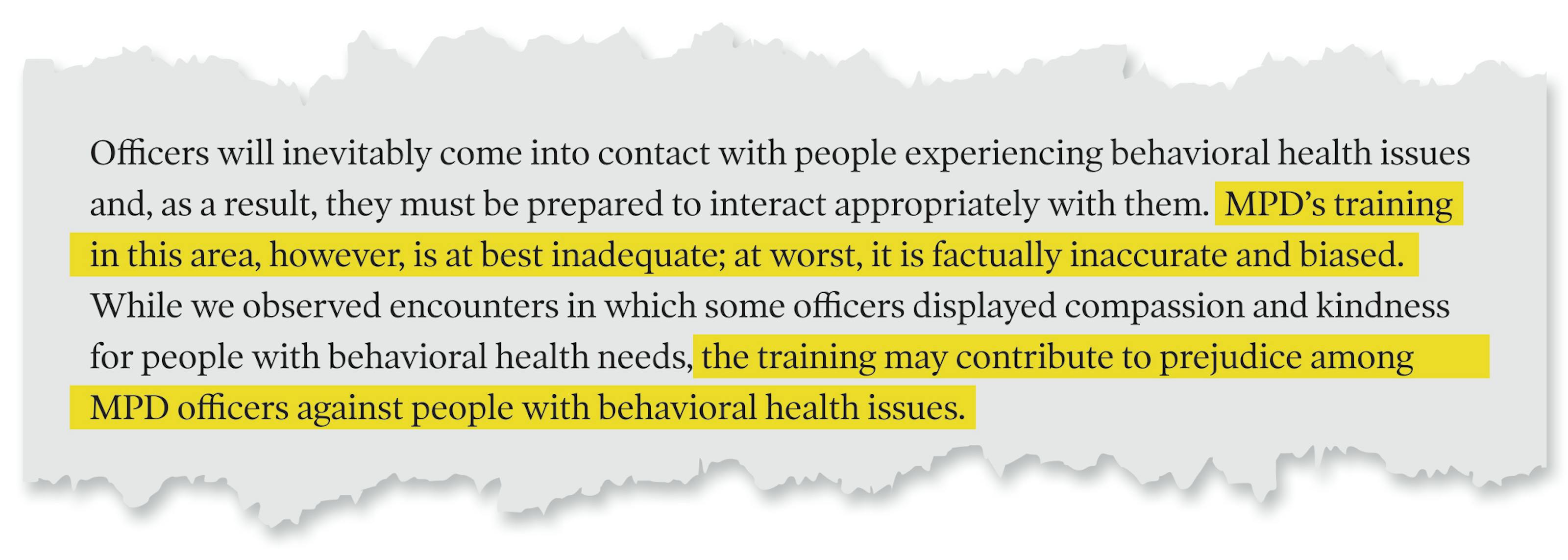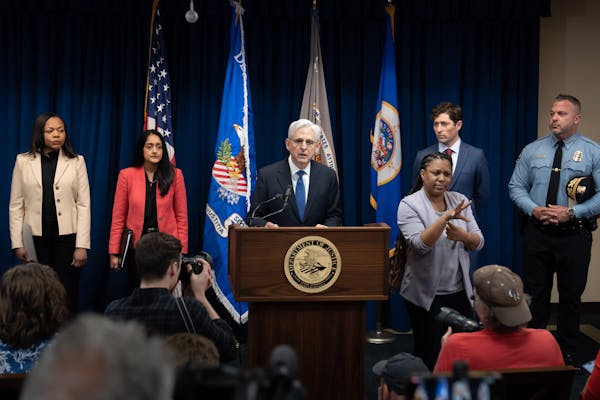The U.S. Department of Justice on Friday presented a new report detailing a "pattern or practice" of misconduct within the Minneapolis Police Department, marking the beginning of what is likely to be a yearslong process that requires the city to enact further reforms.
Federal investigators reached their conclusions after spending two years reviewing thousands of documents, watching video from officers' body cameras, analyzing data, shadowing officers and speaking to city employees, mental health providers and community members.
Officials summarized their findings into four main points:

MPD uses excessive force, including unjustified deadly force.
Federal investigators wrote that they analyzed Minneapolis Police Department incident files for all police shootings and one in-custody death over a six-year period, as well as hundreds of incidents involving "less lethal force."
"Our investigation showed that MPD officers routinely use excessive force, often when no force is necessary. We found that MPD officers often use unreasonable force (including deadly force) to obtain immediate compliance with orders, often forgoing meaningful de-escalation tactics and instead using force to subdue people. MPD's pattern or practice of using excessive force violates the law."
Investigators reviewed all 19 police shootings between 2016 and the summer of 2022, and found that "a significant portion of them were unconstitutional uses of deadly force."

MPD unlawfully discriminates against Black and Native American people.
Investigators wrote that they have "reasonable cause" to believe that the Minneapolis Police Department acted in ways that violated Title VI of the Civil Rights Act of 1964 and the Safe Streets Act, two laws that prohibit law enforcement practices that "have an unjustified disparate impact based upon race."
"Our review showed that MPD disproportionately stops Black and Native American people and employs different enforcement strategies in neighborhoods with different racial compositions," the report said. "During stops involving Black and Native American people, MPD conducts searches and uses force more often than it does during stops involving white people engaged in similar behavior."
The report says Minneapolis officers discriminate when deciding who to search, and use force disproportionately on Black and Native American people. It also says "the percentage of stops for which MPD officers documented race sharply declined following George Floyd's death," making it more difficult to track these statistics.

MPD violates the rights of people engaged in protected speech.
Investigators said the Minneapolis Police Department violates the First Amendment in multiple ways: by retaliating against protesters, retaliating against journalists, penalizing people who question officers' behavior and interfering with people's right to observe and record police activity.
The report says that one officer pushed a protester so hard during a 2021 protest that "she fell backward, hit the pavement and lay unconscious for three minutes." It says officers regularly used projectiles — such as rubber bullets — "against protesters who are committing no crime or who are dispersing."
Investigators said that retaliatory behavior also occurred while officers were responding to calls for help. It cited, among other examples, a 2017 incident in which a teen yelled an expletive at police and an officer "put the teen in a neck restraint."

MPD and the city of Minneapolis discriminate against people with behavioral health disabilities when responding to calls for assistance.
The federal investigation found that the city violated the Americans with Disabilities Act by failing to provide adequate services for people with behavioral health disabilities during emergency responses. While crediting the city for launching a crisis team that deploys civilians to respond to some of these calls, the DOJ found that the program lacked the necessary resources.
The report said that MPD responded to more than 1 million calls between January 2016 and August 2022, almost 10% of which "directly related to a behavioral health issue."
"For the vast majority, MPD was the primary, if not the sole, responder, mostly due to the unavailability of a behavioral health response," the report said.
The report recommends expanding the behavioral crisis response team's training and capacity, providing additional training to 911 call center workers to ensure they can deploy the best teams and developing new policies for police that avoid debunked topics such as "excited delirium."

